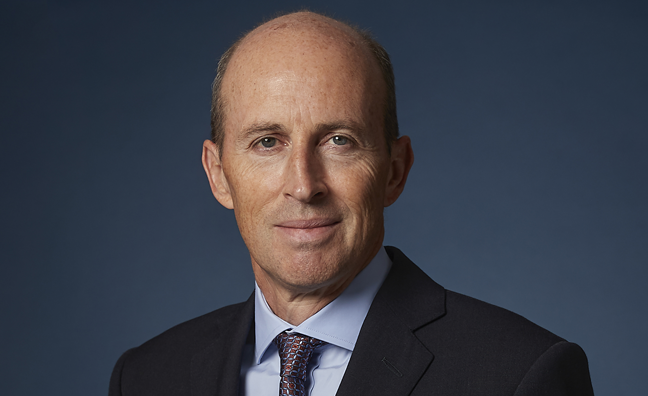PPL has been busy in recent weeks helping those affected by the Covid-19 pandemic.
In the latest issue of Music Week, PPL CEO Peter Leathem joins with his PRS For Music counterpart Andrea C Martin to discuss the long-term effects of the pandemic on the industry and its collections. Live and international have been strong performers, but a delayed reaction from the pandemic will see collections fall in those areas in the years ahead.
As well as pledging £700,000 to hardship funds, PPL is also a supporter of the BPI initiative to commit £1.5 million to various funds.
“We will consider making further such payments to funds like this,” Peter Leathem told Music Week. “Because we are not in this for the short term, this is going to be a lengthy impact on the industry. Over the next 12 to 18 months, we're going to have to try and see what we can do to try to support the industry through that difficult time.”
PPL is also suffering from the impact of the pandemic, which means the collection society’s label and performer members can expect to see a significant drop in income. PPL has furloughed some staff as it looks to control costs.
Last Thursday (April 30) PPL made an advance royalty payment to support members during the pandemic.
“That's something that's unusual for us to do, we wouldn't normally do it,” said Leathem. “But in these circumstances, we thought the importance of cash flow meant it was worth the additional work to make those advance payments. In fact, if you add up the March and April payments, that's more than £100 million that’s gone out to performers and recording rights owners in the last month.”
Following record results in recent years, both PPL and PRS are braced for a loss in collections from their decision to allow payment holidays to businesses, such as shops, restaurants, bars and gyms, who have a public performance licence.
While that will result in an almost immediate drop in income for labels, performers, songwriters, publishers and other rights-holders, Leathem defended the move.
“One of the first things we had to do and came under pressure on was public performance licensing, in that many businesses were having to stop, close down, stop having any operations, which included not having music playing,” he said. “So it became immediately important for ourselves and PRS to work together with PPL PRS, the joint venture licensing operation, to work out what our response was going to be.
“We didn't think it was appropriate that we were charging businesses for a period when they were not open and not using music. But while that's a reasonably simple scenario, coming up with a consistent policy was a bit more complicated and took quite a bit of work in the first week or so of this Covid-19 crisis pandemic to put in place.”
Leathem added: “We've come up with a sensible set of policies that mean we're not going to be charging businesses. That's been well received by the business community, by the relevant trade bodies, by government and various politicians. So that was one of the urgent [decisions] that came forward.”
People will judge companies based on their conduct during a time of crisis
Peter Leathem
As well as stopping charging, PPL PRS has more flexible payment policies for any money owed and it has suspended late payment charges.
While collection societies have worked hard to educate businesses on paying for the use of music over the years, Leathem is not worried about this suspension of payments.
“I think the bigger concerns are going to be what businesses are going to be left after this coronavirus crisis,” he said. “I think clearly there are going to be some casualties, we've already seen some larger chains of stores that have actually gone under already. Clearly, when we start back up the licensing environment will be different. We’ll have fewer businesses left.
“There are going to be a number of knock-on effects. The fact that people have stopped paying for a period of time, I don't think that is necessarily going to be the problem. Because it's become pretty clear in the business community, with the work that PPL and PRS have done over recent years, that you do need to be paying for intangible rights where you're using the creative works of others.”
Leathem acknowledged that businesses that survive the crisis will have cash-flow issues. But he’s confident that PPL’s and PRS’ actions during the crisis will benefit both societies in the long term.
“The fact that we have taken sensible steps to recognise that we should not be charging while a business is not open, can't trade and can't play music, I think that is going to have a more beneficial effect in our relationships with the business community than if we'd sought to continue to charge businesses, when they are not open,” he said.
“That would have gone down particularly badly. Quite rightly, people are saying they will judge companies based on their conduct during a time of crisis. So if anything, I would say that we will re-enter the licensing world in a better position for having taken these steps, even though there is a financial impact from that.”
To read the full report including exclusive interviews with Peter Leathem and Andrea C Martin, subscribers can click here. To subscribe and never miss a big industry story click here.
* To make sure you can access Music Week wherever you are, subscribe to our digital issue by clicking here.












